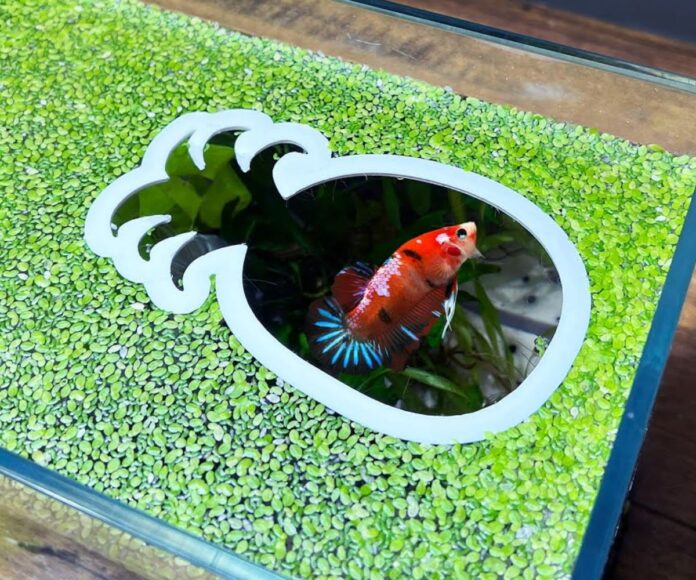Duckweed, a tiny, free-floating aquatic plant, is a familiar sight in many freshwater aquariums. Its rapid growth rate and ease of care make it a popular choice among fishkeepers, hobbyists, and aquarium enthusiasts. But is duckweed good for betta fish? While some aquarists swear by its benefits, others express concerns about its potential drawbacks. To shed light on this debate, let’s delve into the opinions and recommendations of betta fish experts and understand the potential pros and cons of incorporating duckweed into a betta’s habitat with BettaFishy.
Is Duckweed Good for Betta Fish? Some Duckweed Advantages
Water Quality Improvement
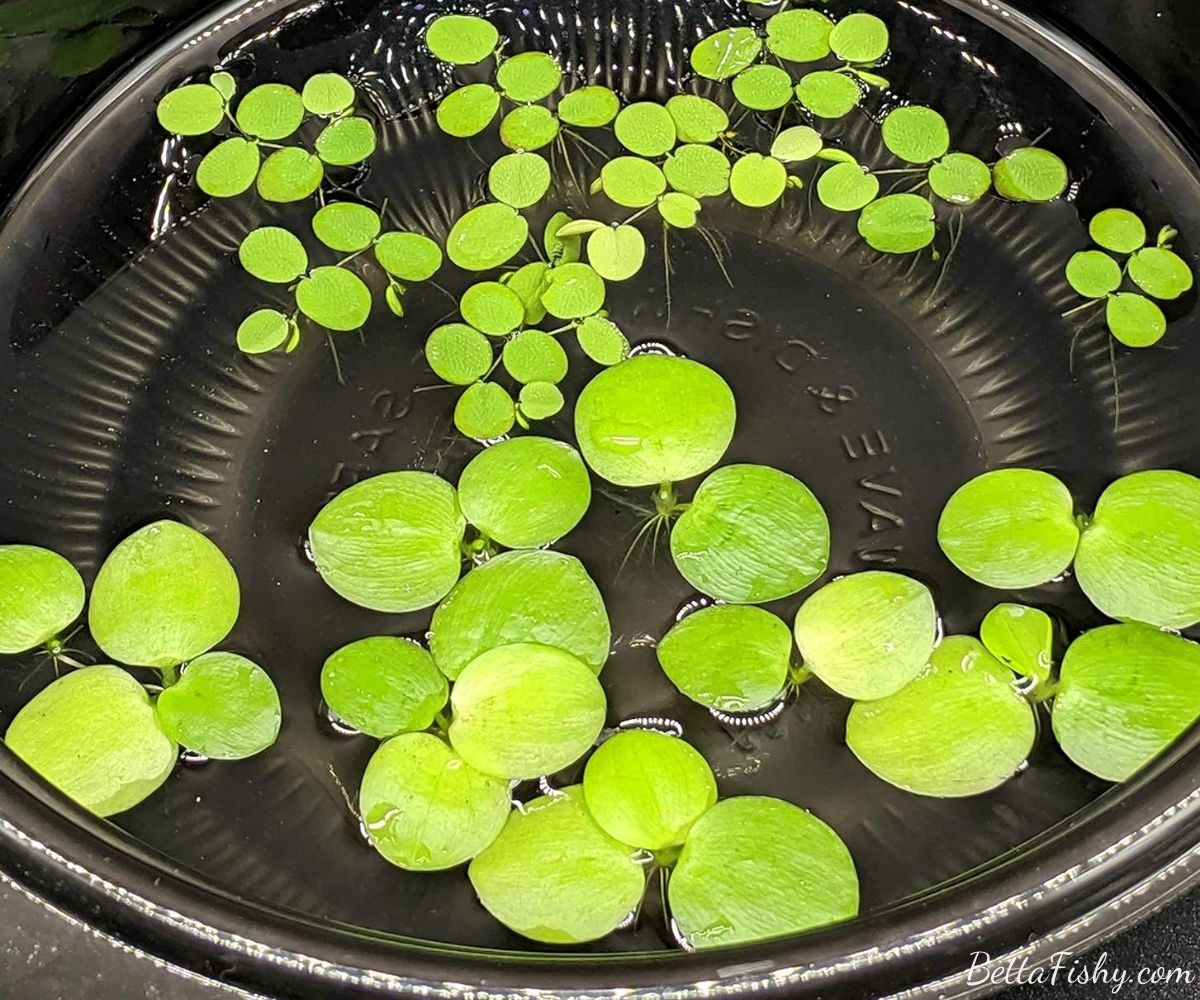
One of the main benefits of duckweed for betta fish is its ability to improve water quality. Duckweed is known for its remarkable ability to absorb nitrates and phosphates, two common pollutants produced by fish waste and decaying organic matter. These substances can be harmful to betta fish if they accumulate in high levels in the aquarium water. By removing them, duckweed helps maintain a clean and healthy environment for betta fish to thrive in.
In fact, a study published in the Journal of Aquatic Plant Management found that duckweed was able to reduce nitrate levels in an aquarium by up to 90% within just 10 days. This makes it a valuable ally in keeping the water parameters in check and preventing potential health issues for betta fish.
Create Habitat and Hiding Places
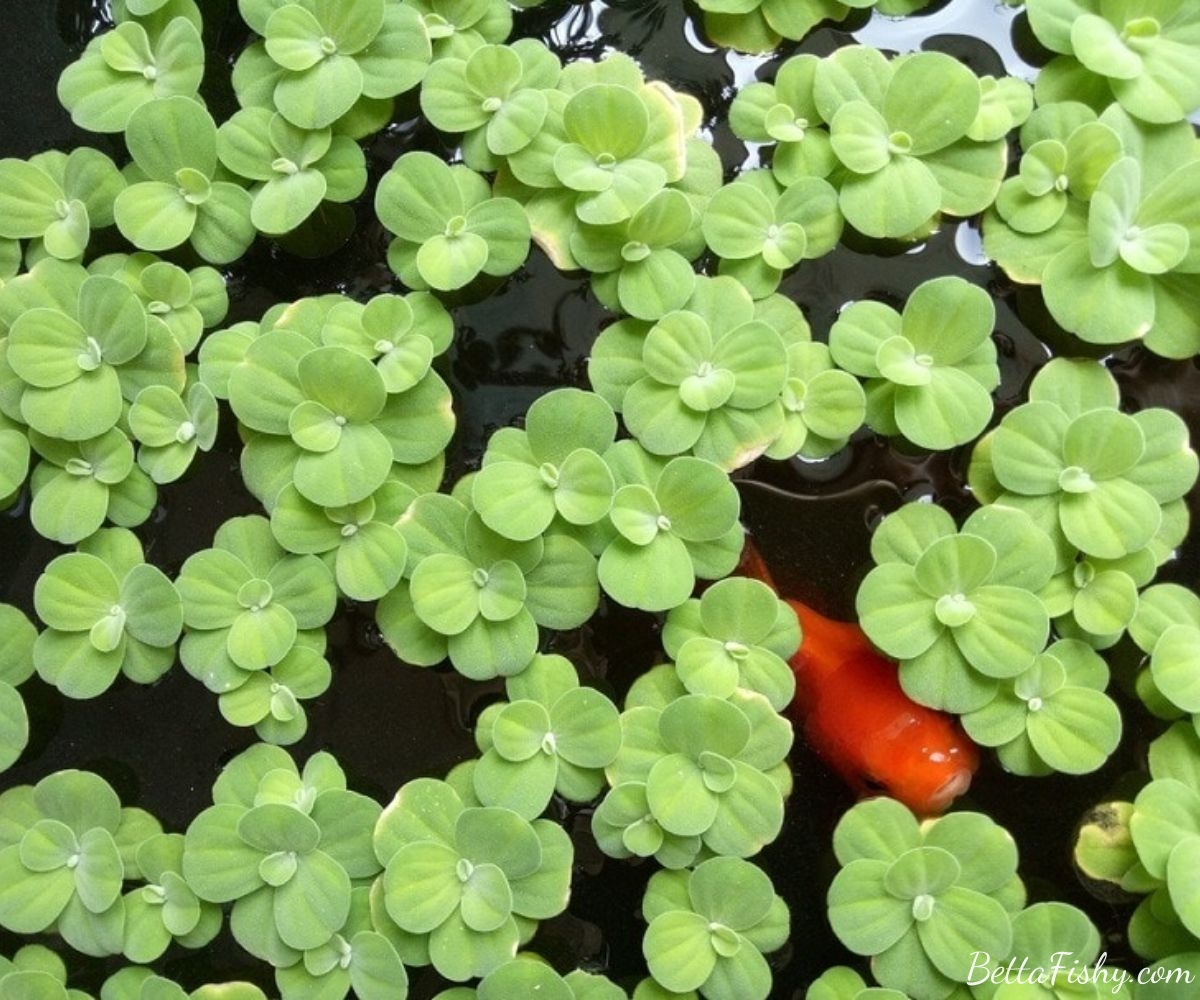
Another benefit of duckweed for betta fish is its ability to create a natural habitat that closely resembles their natural environment. In the wild, betta fish live in shallow, slow-moving waters with plenty of vegetation. Duckweed provides a similar environment in the aquarium, with its dense, interwoven structure providing ample hiding spots for betta fish to feel secure and protected.
This can have a positive impact on the well-being of betta fish, as it reduces stress and encourages more natural behaviors. In fact, some betta fish experts believe that providing a natural habitat for bettas can even improve their overall health and lifespan.
Is a Nutritious Food
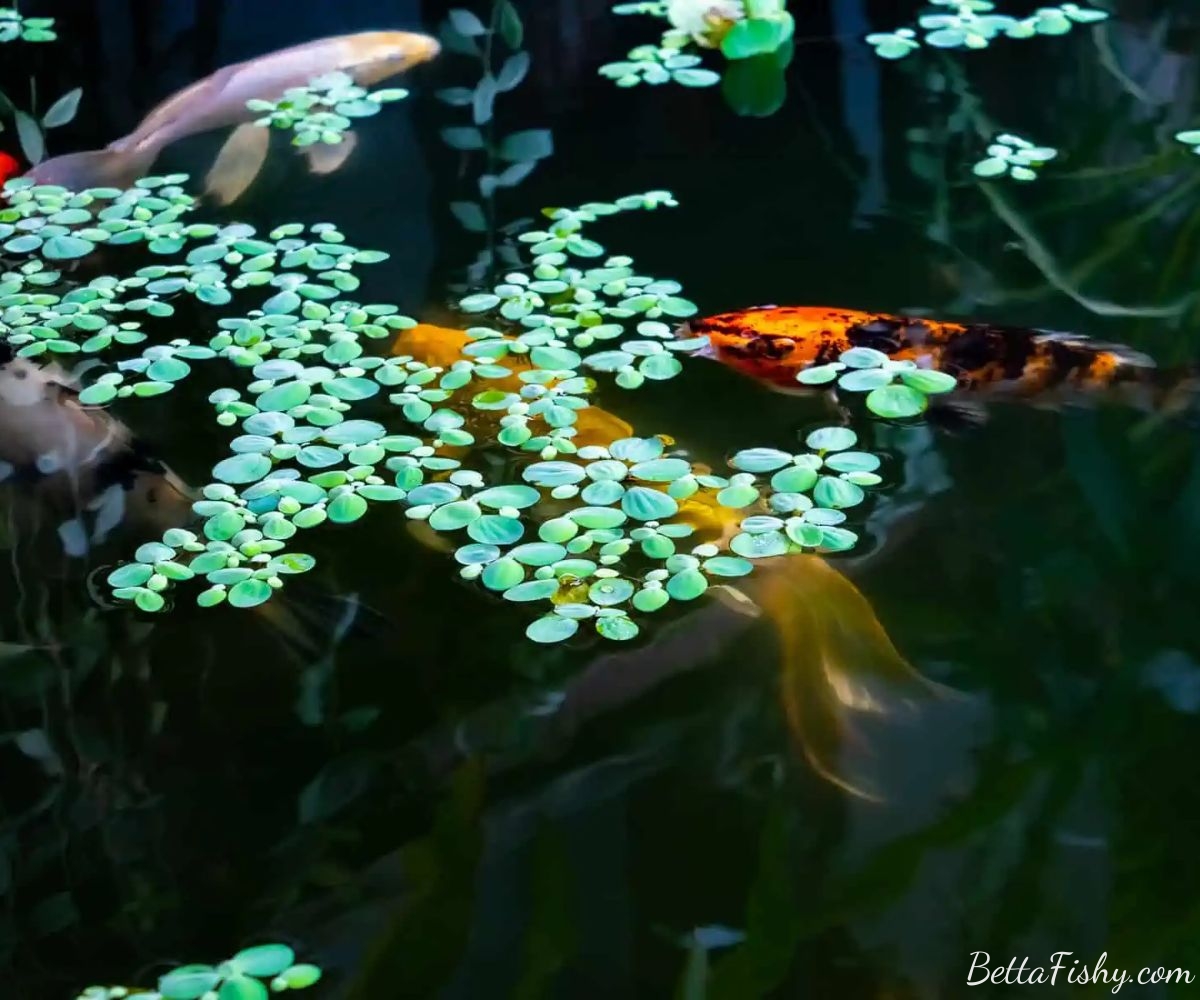
Betta fish are omnivorous and enjoy nibbling on duckweed as part of their diet. Duckweed is rich in protein, vitamins, and minerals, making it a nutritious and beneficial addition to their diet. It also contains essential amino acids that betta fish need for growth and development.
In the wild, betta fish feed on a variety of small insects, crustaceans, and plant matter. Duckweed provides a similar food source in the aquarium, helping to replicate their natural diet and providing them with a well-rounded nutritional profile.
Potential Drawbacks or Considerations When Feeding Duckweed to Betta Fish
While there are many benefits to incorporating duckweed into a betta’s habitat, there are also some potential drawbacks or considerations to keep in mind.
Oxygen Depletion
One concern that some aquarists have about duckweed is its ability to deplete oxygen levels in the aquarium. As duckweed grows and multiplies rapidly, it can cover the surface of the water, limiting the exchange of gases between the water and the air. This can lead to decreased oxygen levels, which can be harmful to betta fish and other aquatic inhabitants.
To prevent this from happening, it is important to regularly thin out the duckweed and remove excess plants from the surface of the water. This will allow for proper gas exchange and maintain adequate oxygen levels for the fish.
Nutrient Competition
Another consideration when bettas eat duckweed is nutrient competition. While duckweed is known for its ability to absorb nitrates and phosphates, it also competes with other plants in the aquarium for nutrients such as carbon dioxide and trace elements. This can potentially lead to nutrient deficiencies in other plants, affecting their growth and overall health.
To avoid this, it is important to provide a balanced and varied diet for betta fish that includes other types of plants and food sources. This will ensure that all the plants in the aquarium receive the necessary nutrients to thrive.
Aesthetics
Lastly, some aquarists may find duckweed to be aesthetically unappealing. Its small size and rapid growth rate can make it difficult to control, and it can quickly cover the surface of the water, making it look messy and cluttered. This can also make it challenging to see and enjoy the fish in the aquarium.
However, with proper maintenance and regular thinning, duckweed can be kept under control and still provide its benefits to betta fish.
Expert Opinions and Recommendations
To get a better understanding of the potential benefits and drawbacks of duckweed for betta fish, let’s take a look at what betta fish experts and breeders have to say about it.
What Betta Fish Experts and Breeders Say About Duckweed
According to popular betta fish expert and author, Dr. Robert J. Goldstein, duckweed is a great addition to a betta’s diet. In his book “Betta Care Made Easy,” he recommends feeding betta fish a variety of live and frozen foods, including duckweed. He notes that duckweed is an excellent source of protein and can help enhance the coloration of betta fish.
Similarly, renowned betta breeder and author, Gene Lucas, also recommends duckweed as part of a well-rounded diet for betta fish. In his book “The Betta Handbook,” he states that duckweed is a great source of nutrients and can help keep the water clean and clear.
However, not all experts are in favor of using duckweed in betta fish tanks. Some argue that while duckweed may provide some benefits, it is not necessary for the overall health and well-being of betta fish. They believe that a balanced and varied diet, along with proper water maintenance, is enough to keep bettas healthy without the need for duckweed.
Recommendations For Your Aquarium
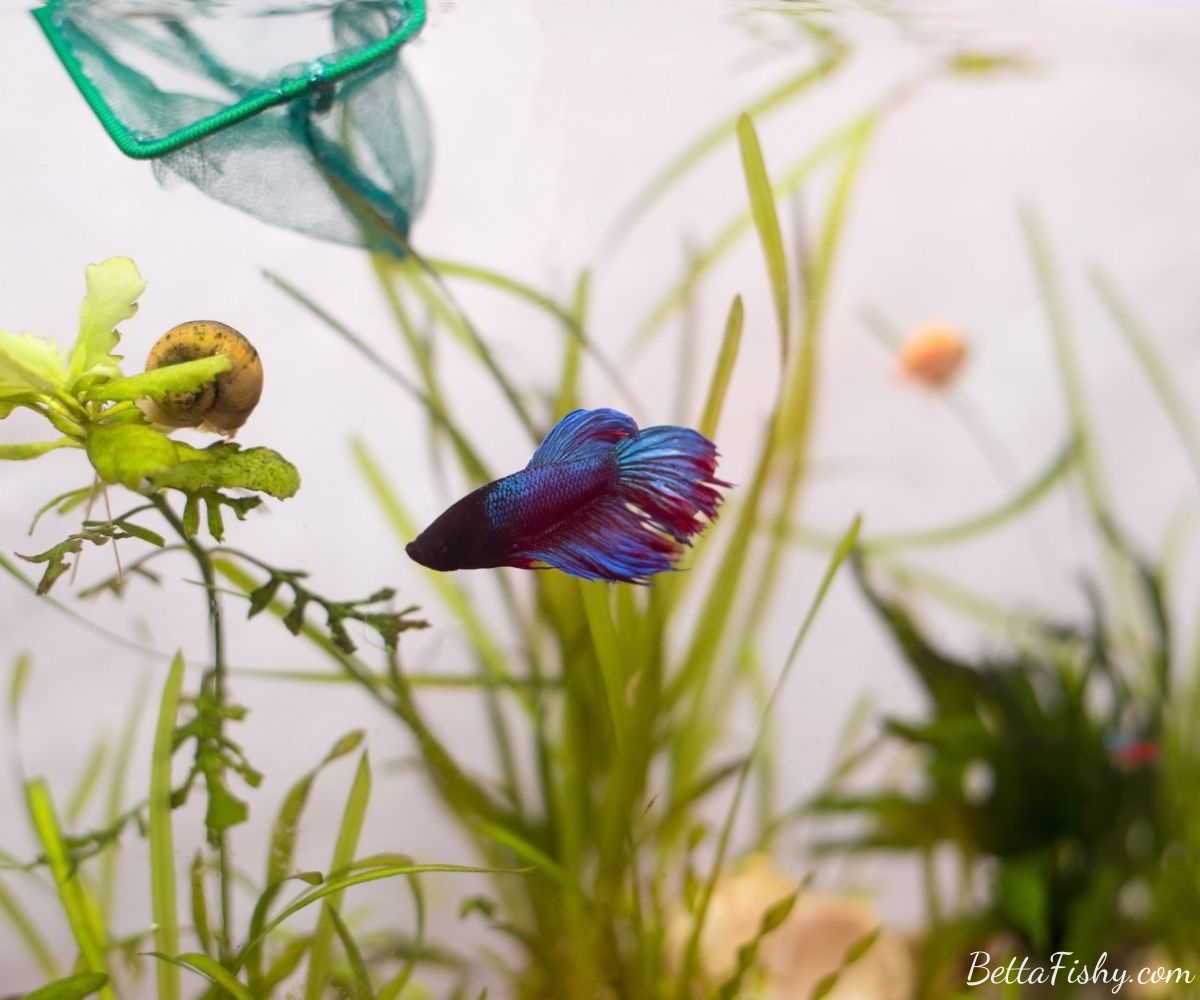
Based on the opinions and recommendations of betta fish experts and breeders, to say that duckweed is safe for bettas and can be a beneficial addition to a betta’s habitat. Its ability to improve water quality, provide a natural habitat, and serve as a nutritious food source make it a valuable asset in keeping betta fish happy and healthy.
However, it is important to keep in mind the potential drawbacks and considerations when incorporating duckweed into an aquarium. Regular maintenance and proper care are necessary to prevent oxygen depletion, nutrient competition, and aesthetic issues.
Conclusion
In conclusion, the question of “Is Duckweed Good for Betta Fish?” has no single definitive answer. While its water-purifying properties, naturalistic ambience, and potential dietary value offer clear advantages, potential drawbacks necessitate careful consideration and proper management.
Ultimately, the decision to welcome duckweed into your betta’s sanctuary depends on your specific needs and preferences. As with any alteration to a betta’s environment, thorough research and consultation with experts are crucial before making any changes

